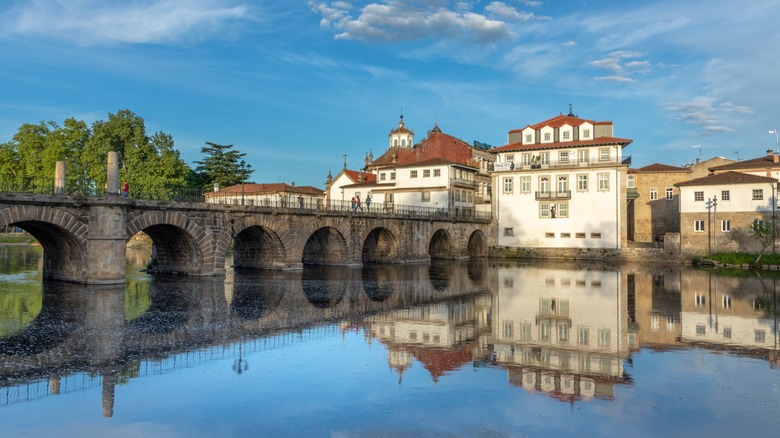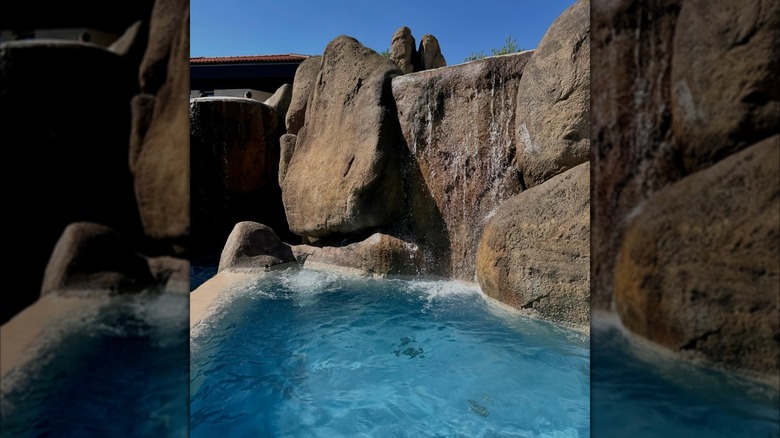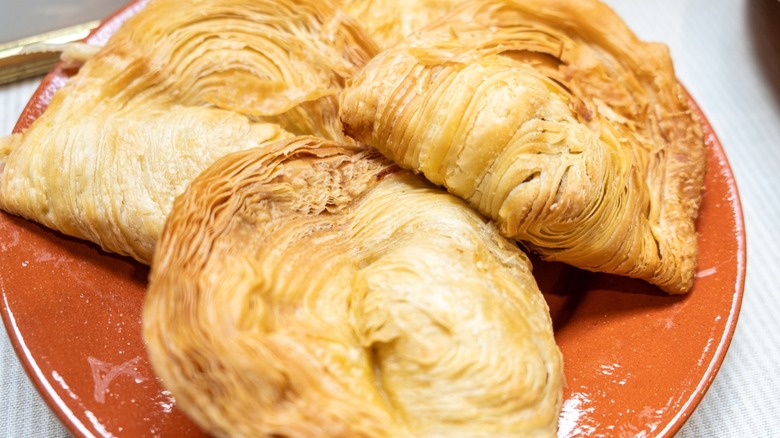An Affordable And Wildly Underrated Northern Portugal City Is Famous For Its Thermal Springs And Flaky Pastries
While most travelers look to Portugal's southern half, like Lisbon and the Algarve, the north of the country is still much of a hidden gem. Take the small town of Chaves, which sits just seven miles from the Spanish border, in the Alto Tâmega region (1.5 hours from Porto). Here, locals embrace a leisurely pace of life, far from the crowds of tourists.
Chaves' name — meaning "keys" in Portuguese — is a nod to its remarkable history as a strategic stronghold. It's home to a Roman bridge that stretches across the Tâmega River, a 14th-century castle, and a medieval quarter with narrow, winding streets. In the 16th century, the city defended itself from the Kingdom of Castile (which later became Spain). Chaves even managed to survive an attack by Napoleon and his French militia in the 19th century.
If you're more of a wellness enthusiast than a history buff, don't worry. Chaves is known for its healing waters and thermal baths. They may not be among the most luxurious destinations to soak in hot springs, but their past and cultural significance make the city's thermal baths worth experiencing. And, foodies can taste their way around town, trying local delicacies like "pastel de chaves," a flaky, meat-filled pastry. Travelers wanting to experience the comforts and food of Chaves will need to fly into Francisco Sá Carneiro Airport, over 90 miles away. Unfortunately, the local aerodrome just outside of Chaves isn't a big enough hub for international visitors.
Take a dip in the thermal springs in Chaves, Portugal
The warm mineral water in Chaves has been considered special for millennia. When the city was a Roman settlement, Emperor Titus Flavius Vespasianus named it "Aquae Flaviae" in honor of these thermal springs. Today, you can see the ruins of the Roman baths in a fantastic free museum, the Museu das Termas Romanas de Chaves. It houses the most prominent Roman bathhouse on the Iberian Peninsula, which was also one of the largest in the entire Roman Empire.
The Termas de Chaves spa was built around the thermal springs, so you can soak in the warm pools, have a relaxing massage, or book a wellness treatment. The water is some of the hottest in Europe, with temperatures hovering around 169 degrees Fahrenheit. Since the new Aquae Salutem Thermal Complex's official opening in March 2025, the spa has boasted the country's largest thermal pools. Now, there are hydrodynamic pools, sensory thermal showers (plus an ice fountain to cool off), a Turkish bath, and a sauna. The entry price is determined by how long you stay and which areas of the spa you want to access.
For free access to Chaves' thermal waters, check out the historic Buvette de Chaves, where you can take a sip alongside locals. If you're extending your trip and traveling between Lisbon and Porto, check out Caldas da Rainha for more thermal baths and mouthwatering food.
Taste a pastel de Chaves in Chaves, Portugal
Portugal has a thriving food scene and many decadent recipes. You may have heard of "pastel de nata," a cream custard puff pastry that the country is known for. Try it for yourself at Lisbon's oldest patisserie serving authentic Portuguese pastries. In Chaves, locals added their own twists to traditional dishes, with one of their most famous being "pastel de Chaves," a crisp puff pastry stuffed with minced veal, onions, and bread. It's more savory compared to the sweet "pastel de nata" dessert.
Teresa Feliz Barreira, the founder of Casa do Antigo Pasteleiro bakery, created the "pastel de Chaves" in 1862. The pastry was immediately a favorite, and it became so popular that she kept the recipe a secret for 75 years. She was the only baker making "pastel de Chaves" until the 1940s, when other bakeries in the area learned how to make the pastry, too. It's so treasured that it has been designated a Protected Geographical Indication product, meaning only authentic pastries — made using the original recipe and sold in Chaves — can be called "pastel de Chaves." The city's bakeries make more than 25,000 of these pastries every day. Pick up a few fresh out of the oven from Pastelaria Maria, D'Chaves, Mil Doce, or Prazeres da Terra.


